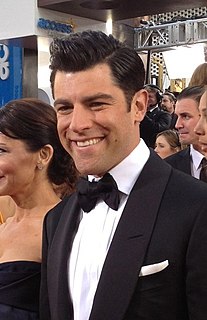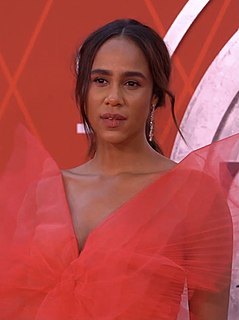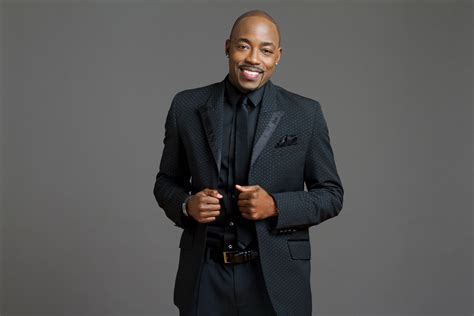A Quote by Peter Landesman
When a director is also a writer, everyone on the production looks to him, knowing he gave birth to the idea. There's a different level of viability.
Related Quotes
People have a different idea of how movies are made than they really are. On a certain level, everyone throws ideas into the hopper. It's not like the actors are wind-up dolls that you push out onto the floor, play with, then put back in the box. You get people around you who you trust; the writer, the producer, the director and all the actors all contribute.
Over time, years of meditation gave me glimpses of the interconnectedness and interdependence of all life. I experienced that on one level we are alone, separate, apart from everyone and everything; on another level, we are the Self in different disguises, different names and forms, a part of everyone and everything. This experience of interconnectedness is part of spiritual traditions and the perennial wisdom in virtually all religions and cultures.
The dream, I think, with any project is it starts with an idea, and then somebody writes it, and the writer hopes that a director comes on and makes this piece of material visual, and both the director and writer hope that they can have actors come in and bring something to it that neither one of them expected, elevating it along the way.
You can give the greatest performance possible, but if you don't have a director who's pointing the camera in the right direction and an editor who's editing it properly, it doesn't matter what you do. The director and the editor are the most important people. Not the actors. Sometimes the writer is important. But if you don't have a good director, you can't have a good production.
Every director is different and they all have different styles. I've worked with directors who were very specific and they gave a lot of direction. The one thing about Michael [Haneke]that I think is interesting is that he really has a reason for everything he's asking you. If you challenge it, he is open for discussion but he has a clear idea of what he wants with reasons why.
The only episode which was completely my idea was for Mitch Pileggi, the actor who portrays Skinner, the Assistant Director of the FBI. He appears often in the series, but only for a few scenes. You know virtually nothing about him. I wanted him to have an episode that was his alone, so I wrote Avatar for him. He even has a scene that's pretty . . . hot [knowing smile]. He was very happy.







































